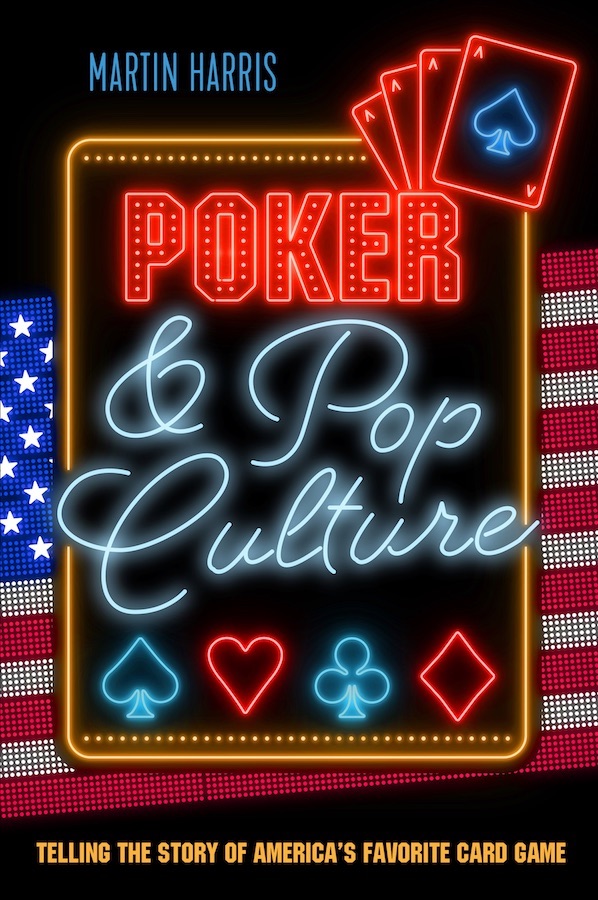Dostoevsky is Not Considered Summer Reading (Pt. IV)
One last thought about Fyodor Dostoevsky’s The Gambler and how it relates to the poker player’s experience. Not to worry. Tomorrow I’ll be saying sayanora to the book club for awhile and get back to the friggin’ tables.
I previously discussed a couple of other ideas from the novel that might be interesting to poker players. The first involved how the novel successfully dramatizes a common fallacy in poker whereby we believe that the way the cards are dealt in one hand has something to do with the way they will be dealt in the following hand. Miller/Sklansky/Malmuth humorously remind us that “Cards are pieces of plastic. They have no knowledge, no memory, no cosmic plan.” The Gambler also conveys this truth about the roulette wheel, although we see in the novel how even those characters who understand this still sometimes act as though they do not.
The second idea concerned the way playing poker tends to consume our thinking to the point that we forget about past and future and live as though only the present moment is of any consequence. Again, characters in the novel vividly portray this phenomenon. In that post I concluded that such living only in the “here and now” doesn’t necessarily have to be a bad thing, particularly if understanding this helps you concentrate on your decision-making at the table (and doesn’t wreck your life as happens to Alexey Ivanovitch).
I want to talk about another interesting aspect of gambling and its psychological effects that comes up in The Gambler. Alexey’s experience in the novel shows how gambling in fact satisfies two contradictory desires that most humans possess. (I say most humans because certainly there are those who don’t have these desires, but since those that don’t probably also don’t like to gamble very much they aren’t of much concern to us here.) The two desires are
Alexey Ivanovitch is both the main character and narrator of The Gambler (the novel is presented to us as his “diary”). Early in the novel he talks about how he felt when he first came to Roulettenburg: “I knew for certain, and had made up my mind long before, that I should not leave Roulettenburg unchanged, that some radical and fundamental change would take place in my destiny; so it must be and so it would be.” Alexey speaks with such assurance here because he knows in Roulettenburg he will gamble. Such knowledge grounds him, actually, since otherwise he is relatively clueless about everything going on around him. That Alexey often complains about how others miserably exist in “bondage and submission” proves that he prefers having more command over his life than most others are able to have. Being able to gamble allows Alexey a kind of control over his “destiny” that as a lowly tutor he otherwise wouldn’t possess. He even goes so far as to tell others “I am absolutely convinced that when I begin playing . . . I shall win.”
Alexey is clearly self-deluded about how much “control” he actually can have when playing roulette. He can control whether or not he plays, of course, but he cannot control whether or not he’ll win. Nevertheless, I think Alexey here exemplifies the poker player’s experience to a degree when he comes to the table knowing “for certain . . . that [he] should not leave . . . unchanged.” Even if a poker player plays two hundred hands and leaves with exactly the same amount of money with which he began, he will not be unchanged. Thus does playing poker strangely allow us to exert a kind of control over ourselves (and, at times, over others) that we normally don’t possess. In fact, one might define poker as an activity in which each participant is trying to exert the most control in situations where everyone is a little out of control. We succeed sometimes. The best of us succeed more often than the worst of us. But even terrible players get to taste such control every now and then, thus satisfying a desire that all of us sitting around the table likely have at least to some degree.
For all his talk about defying fate, however, Alexey appears equally desirous to give up himself to the spin of the roulette wheel. Having personal responsibility over oneself is such an enormous burden we sometimes want (like Alexey) to let it go and yield ourselves entirely to some other authority (perhaps greater, perhaps not). Gambling -- like religious faith, actually -- provides for many an opportunity to relinquish such responsibility. Frequently in the novel Alexey shows how much he wishes not to be responsible for himself, for instance when he willingly assumes the role of “slave” to Polina. Since he isn’t accountable, things like “good” and “evil” no longer matter to him. “I don’t even worry my head about moral qualities of any sort,” he says early on to Polina. “I see nothing but you everywhere, and all the rest is naught to me.” Gambling produces a similar effect upon Alexey. At the end of the novel he admits “I even dream of playing.” Again, “all the rest is naught.” He’s beyond good and evil. He’s able to exist without a will of his own.
I’d suggest that playing poker satisfies a similar urge for most of us as well. There is something thrilling about not being entirely responsible for what happens at the tables. We all want to win, of course, but when it happens that we’ve flopped a set and someone unreasonably stays in the hand to make a one-card flush on the river, we know we aren’t to blame. What sweet relief not to be held accountable, even when things go wrong!
As I’ve said before, most of us aren’t as extreme in our relationship to gambling/poker as Alexey is in The Gambler. For most of us these desires -- to exert control and to relinquish personal responsibility -- are satisfied at the poker table but only in a temporary way. Most of us readily go back to our “real” lives where our control is limited and our personal responsibility considerable.
There are other items of interest in the novel, and I do recommend it to any poker player. It’s summer time, though . . . I need to put down this book and relax a bit. Find me a game. Where’d I put my beer?
I previously discussed a couple of other ideas from the novel that might be interesting to poker players. The first involved how the novel successfully dramatizes a common fallacy in poker whereby we believe that the way the cards are dealt in one hand has something to do with the way they will be dealt in the following hand. Miller/Sklansky/Malmuth humorously remind us that “Cards are pieces of plastic. They have no knowledge, no memory, no cosmic plan.” The Gambler also conveys this truth about the roulette wheel, although we see in the novel how even those characters who understand this still sometimes act as though they do not.
The second idea concerned the way playing poker tends to consume our thinking to the point that we forget about past and future and live as though only the present moment is of any consequence. Again, characters in the novel vividly portray this phenomenon. In that post I concluded that such living only in the “here and now” doesn’t necessarily have to be a bad thing, particularly if understanding this helps you concentrate on your decision-making at the table (and doesn’t wreck your life as happens to Alexey Ivanovitch).
I want to talk about another interesting aspect of gambling and its psychological effects that comes up in The Gambler. Alexey’s experience in the novel shows how gambling in fact satisfies two contradictory desires that most humans possess. (I say most humans because certainly there are those who don’t have these desires, but since those that don’t probably also don’t like to gamble very much they aren’t of much concern to us here.) The two desires are
(1) to be in control (over our lives, over others, etc.)Now, at first glance it might appear impossible to believe that we can have both of these desires at the same time. After all, how can one be “in control” while at the same time not be responsible for one’s actions or the actions of others? Let me try to explain how this seeming contradiction works in the novel while also relating how it plays out at the poker tables.
(2) to relinquish personal responsibility (over our lives,over others, etc.)
Alexey Ivanovitch is both the main character and narrator of The Gambler (the novel is presented to us as his “diary”). Early in the novel he talks about how he felt when he first came to Roulettenburg: “I knew for certain, and had made up my mind long before, that I should not leave Roulettenburg unchanged, that some radical and fundamental change would take place in my destiny; so it must be and so it would be.” Alexey speaks with such assurance here because he knows in Roulettenburg he will gamble. Such knowledge grounds him, actually, since otherwise he is relatively clueless about everything going on around him. That Alexey often complains about how others miserably exist in “bondage and submission” proves that he prefers having more command over his life than most others are able to have. Being able to gamble allows Alexey a kind of control over his “destiny” that as a lowly tutor he otherwise wouldn’t possess. He even goes so far as to tell others “I am absolutely convinced that when I begin playing . . . I shall win.”
Alexey is clearly self-deluded about how much “control” he actually can have when playing roulette. He can control whether or not he plays, of course, but he cannot control whether or not he’ll win. Nevertheless, I think Alexey here exemplifies the poker player’s experience to a degree when he comes to the table knowing “for certain . . . that [he] should not leave . . . unchanged.” Even if a poker player plays two hundred hands and leaves with exactly the same amount of money with which he began, he will not be unchanged. Thus does playing poker strangely allow us to exert a kind of control over ourselves (and, at times, over others) that we normally don’t possess. In fact, one might define poker as an activity in which each participant is trying to exert the most control in situations where everyone is a little out of control. We succeed sometimes. The best of us succeed more often than the worst of us. But even terrible players get to taste such control every now and then, thus satisfying a desire that all of us sitting around the table likely have at least to some degree.
For all his talk about defying fate, however, Alexey appears equally desirous to give up himself to the spin of the roulette wheel. Having personal responsibility over oneself is such an enormous burden we sometimes want (like Alexey) to let it go and yield ourselves entirely to some other authority (perhaps greater, perhaps not). Gambling -- like religious faith, actually -- provides for many an opportunity to relinquish such responsibility. Frequently in the novel Alexey shows how much he wishes not to be responsible for himself, for instance when he willingly assumes the role of “slave” to Polina. Since he isn’t accountable, things like “good” and “evil” no longer matter to him. “I don’t even worry my head about moral qualities of any sort,” he says early on to Polina. “I see nothing but you everywhere, and all the rest is naught to me.” Gambling produces a similar effect upon Alexey. At the end of the novel he admits “I even dream of playing.” Again, “all the rest is naught.” He’s beyond good and evil. He’s able to exist without a will of his own.
I’d suggest that playing poker satisfies a similar urge for most of us as well. There is something thrilling about not being entirely responsible for what happens at the tables. We all want to win, of course, but when it happens that we’ve flopped a set and someone unreasonably stays in the hand to make a one-card flush on the river, we know we aren’t to blame. What sweet relief not to be held accountable, even when things go wrong!
As I’ve said before, most of us aren’t as extreme in our relationship to gambling/poker as Alexey is in The Gambler. For most of us these desires -- to exert control and to relinquish personal responsibility -- are satisfied at the poker table but only in a temporary way. Most of us readily go back to our “real” lives where our control is limited and our personal responsibility considerable.
There are other items of interest in the novel, and I do recommend it to any poker player. It’s summer time, though . . . I need to put down this book and relax a bit. Find me a game. Where’d I put my beer?
Image: Dostoyevsky in Paris, 1863, public domain.
Labels: *by the book, Fyodor Dostoevsky, The Gambler














0 Comments:
Post a Comment
<< Home